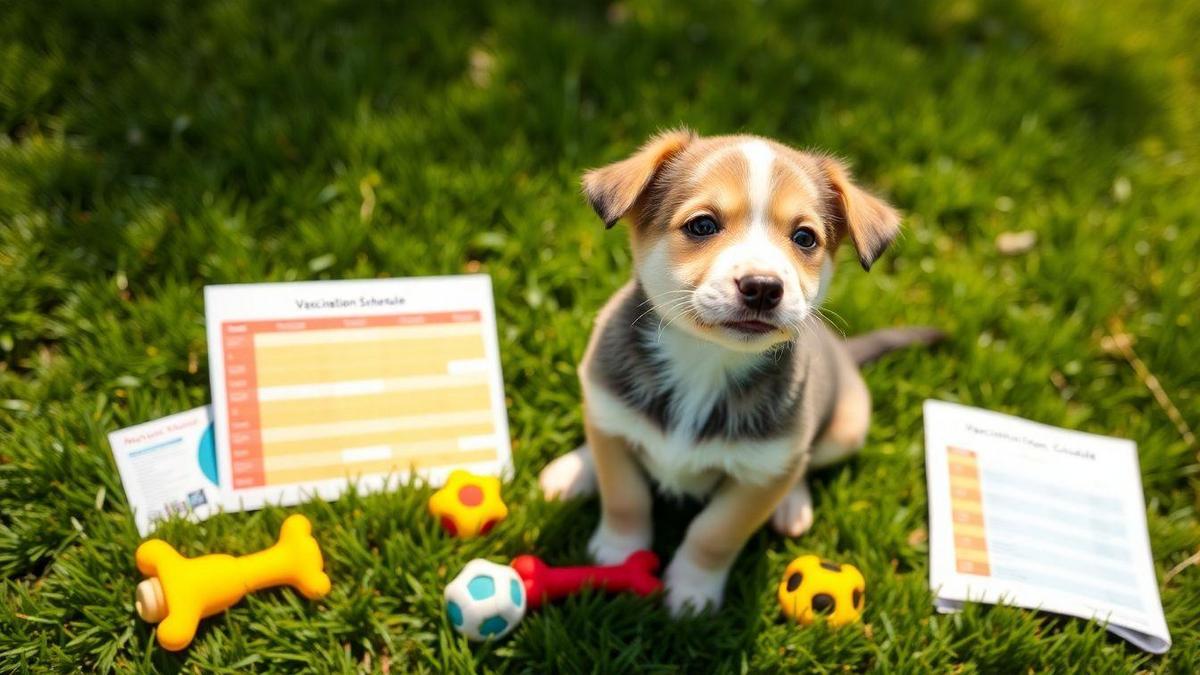When it comes to the Puppy Vaccination Schedule: What You Need to Know, we’ve got your back! Vaccinations are essential for keeping our new furry friends healthy and safe. In this article, we’ll explore everything from the key vaccinations our puppies need to how we can keep track of their vaccination dates. We’ll also share tips for that all-important first vet visit, making it as smooth as possible for all of us. Let’s dive in and ensure our puppies get the best start in life!
Important Points to Remember
- Start vaccinations when puppies are around 6 to 8 weeks old.
- Follow a schedule of shots at 8, 12, and 16 weeks.
- Keep track of our puppy’s vaccination records.
- Consult our vet for any specific vaccine needs.
- Boost our puppy’s vaccines as they grow.
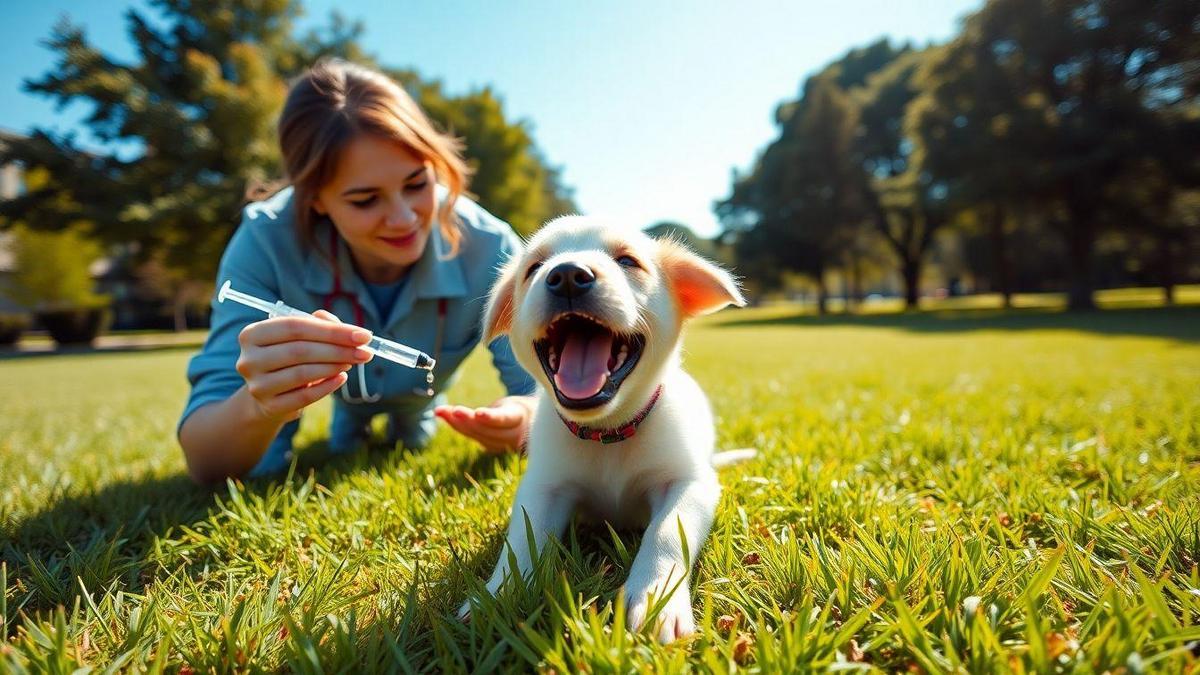
Understanding the Puppy Vaccination Schedule: What You Need to Know
Key Vaccinations for Your New Puppy
When we bring a new puppy into our lives, one of the first things we need to think about is their vaccination schedule. Vaccines are like a shield for our furry friends, protecting them from serious diseases. Here are some of the key vaccinations our puppies need:
- Distemper: A serious disease affecting a puppy’s respiratory, gastrointestinal, and nervous systems.
- Parvovirus: A virus that can cause severe vomiting and diarrhea, spreading quickly and being potentially deadly.
- Adenovirus: Protects against hepatitis, which can affect the liver.
- Rabies: Important for all dogs, protecting against a deadly virus affecting both dogs and humans.
Importance of Timely Vaccinations
Timely vaccinations are crucial for our puppies. Just like us, they need protection from diseases as they grow. Missing a vaccination can put our puppy at risk. Keeping up with the schedule helps build their immune system. For example, waiting too long for the parvovirus vaccine could lead to illness. The first few months of their life are critical, and these shots help keep them safe.
Keeping Track of Your Puppy’s Vaccination Dates
Now that we know about the key vaccinations, it’s important to keep track of when our puppy gets each shot. Here’s a simple way to keep track:
| Vaccination | Date Given | Next Due Date |
|---|---|---|
| Distemper | 01/15/2023 | 03/15/2023 |
| Parvovirus | 01/15/2023 | 03/15/2023 |
| Adenovirus | 01/15/2023 | 03/15/2023 |
| Rabies | 06/15/2023 | 06/15/2024 |
We can use a calendar, set reminders on our phones, or even create a chart like the one above. This way, we won’t miss any important dates.
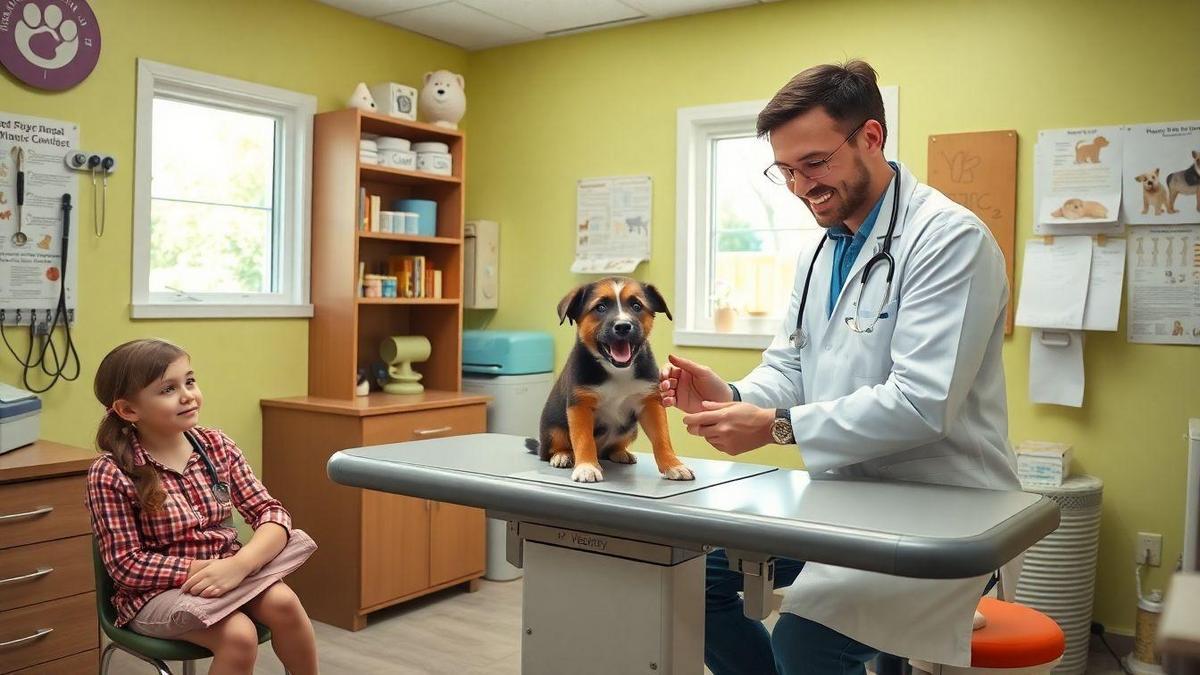
The First Vet Visit for Puppies: What to Expect
Preparing for Your Puppy’s First Vet Appointment
Getting ready for our puppy’s first vet visit can feel like a big step. We want to ensure everything goes smoothly. Here are some tips to help us prepare:
- Gather Important Documents: Bring any paperwork we have, like adoption papers or health records.
- Make a List of Questions: Think about what we want to ask the vet. This can help us remember everything.
- Pack Essentials: Bring a leash, a favorite toy, and some treats to keep our puppy calm.
Questions to Ask the Veterinarian
When we sit down with the vet, it’s a great chance to learn more about our puppy’s health. Here are some questions we might want to ask:
- What vaccinations does my puppy need?
- How often should I bring my puppy in for check-ups?
- What food is best for my puppy’s age and breed?
- Are there any specific health issues I should watch for?
Making the Most of Your Puppy’s First Visit
This first visit is not just about shots; it’s about building a relationship with our vet. We want our puppy to feel comfortable and safe. Here’s how we can make the most of it:
- Stay Calm: Puppies can sense our emotions. If we’re calm, they are more likely to be calm too.
- Observe the Vet: Watch how the vet interacts with our puppy. This can give us clues about their style and approach.
- Take Notes: Jot down any advice or tips the vet gives us. It’s easy to forget things when we’re excited or nervous.
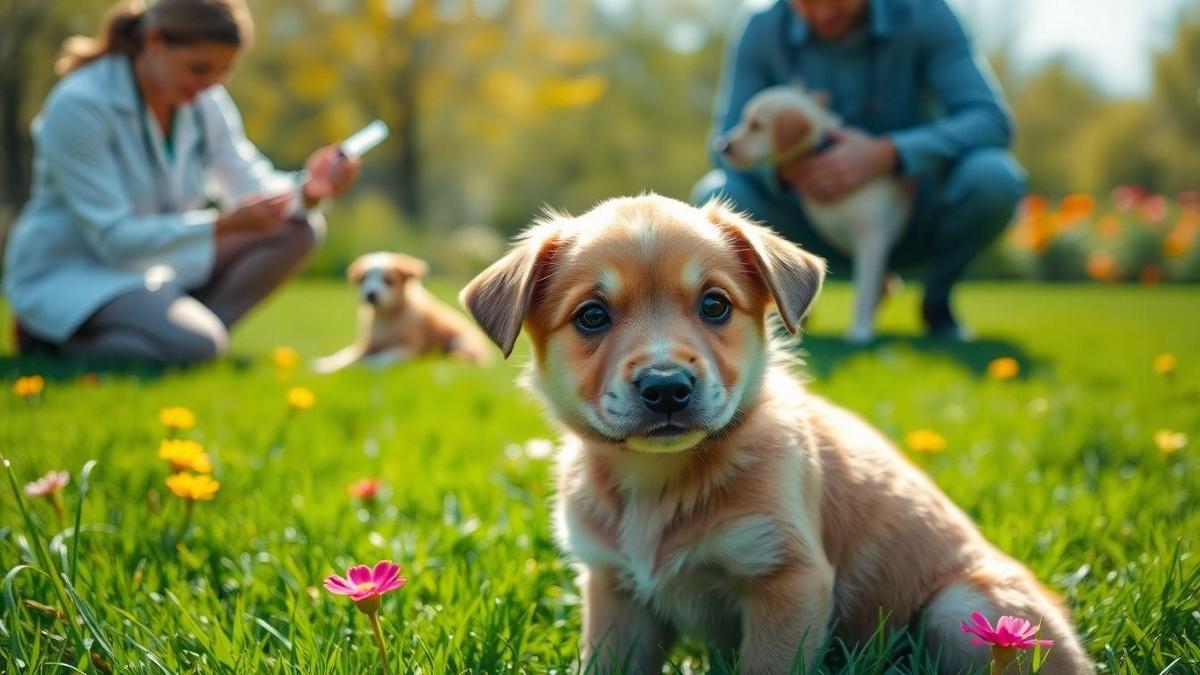
Essential Puppy Vaccinations: A Quick Guide
Core Vaccines Every Puppy Needs
When we bring a puppy into our lives, we want to do everything we can to keep them healthy. That’s where core vaccines come in. These vaccines are essential for protecting our furry friends from serious diseases. Here’s a quick list of the core vaccines every puppy should get:
- Distemper
- Parvovirus
- Canine Hepatitis
- Rabies
These vaccines are like a safety net for our puppies. They help shield them from illnesses that can be life-threatening. It’s important to follow the vaccination schedule recommended by our vet to ensure our puppy gets all the necessary shots on time.
Optional Vaccines to Consider
Along with core vaccines, there are also optional vaccines we might want to consider. These can provide extra protection based on our puppy’s lifestyle and environment. Here are some optional vaccines we can think about:
- Bordetella (Kennel Cough)
- Lyme Disease
- Leptospirosis
If our puppy will be around other dogs often or spending time outdoors, these optional vaccines can be a smart move. Always chat with our vet to see what’s best for our pup.
Understanding Vaccine Schedules for Puppies
Keeping track of our puppy’s vaccination schedule can feel a bit tricky, but it’s vital for their health. Typically, puppies start their vaccinations between 6 to 8 weeks of age. Here’s a simple table to help us understand the schedule better:
| Age (Weeks) | Core Vaccines | Optional Vaccines |
|---|---|---|
| 6-8 | Distemper, Parvo | Bordetella (if needed) |
| 10-12 | Canine Hepatitis | Lyme Disease (if needed) |
| 16 | Rabies | Leptospirosis (if needed) |
Following this schedule helps our puppies build strong immunity. It’s like giving them a shield against harmful germs. Let’s make sure we keep up with these appointments and give our pups the best start in life!
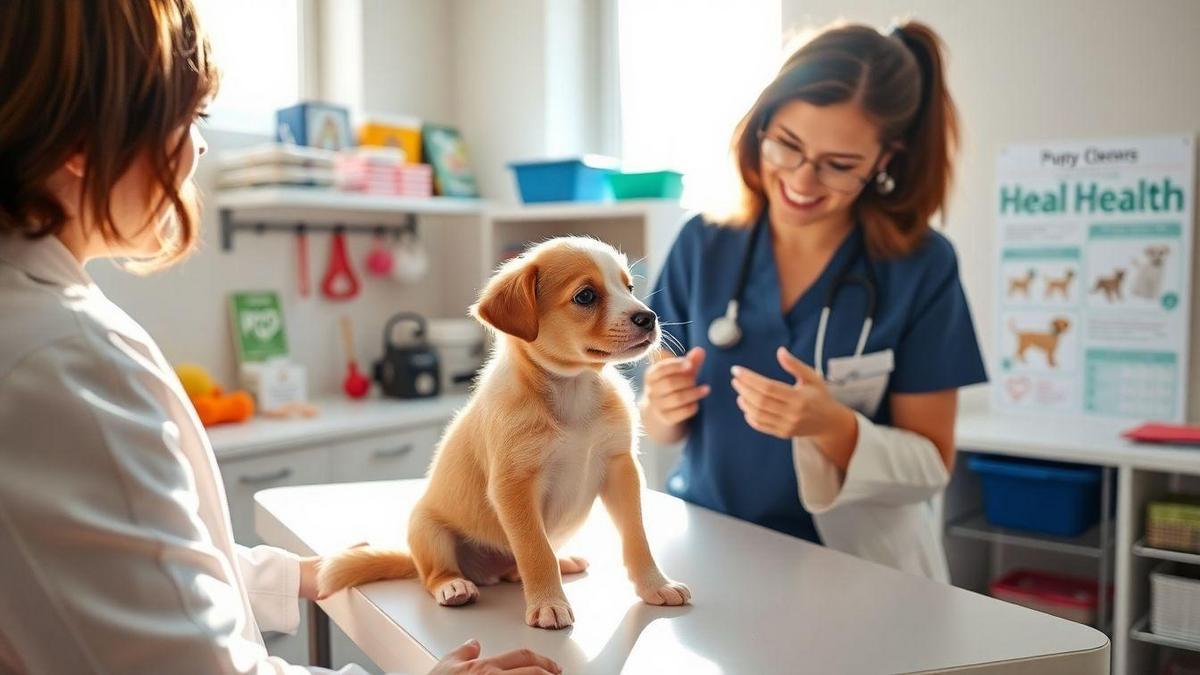
Puppy Health Care: Beyond Vaccinations
Nutrition and Diet for Healthy Growth
When we welcome a puppy into our lives, one of the first things we need to think about is their nutrition. Just like us, puppies need a balanced diet to grow strong and healthy. A good puppy food should have the right mix of proteins, fats, and carbohydrates. To ensure our puppies are getting the best nutrition, we can refer to resources that discuss the best diet for your dog’s age and activity level.
Here’s a quick look at what we should consider:
| Nutrient | Importance |
|---|---|
| Proteins | Builds muscles and tissues |
| Fats | Provides energy and healthy skin |
| Carbohydrates | Gives energy for playtime |
| Vitamins | Supports immune health |
| Minerals | Aids in bone and teeth growth |
We can also consider adding some fresh fruits and vegetables to their diet. Items like carrots, apples, and blueberries can make great treats! But let’s remember to check with our vet before making any changes. Keeping our puppy’s diet nutritionally balanced is key to their overall health.
Regular Check-Ups and Health Monitoring
Regular vet visits are a must for our furry friends. These check-ups help us keep an eye on our puppy’s health and catch any issues early. During these visits, our vet will check our puppy’s weight, coat, and overall health. They might also suggest some preventive care like flea and tick treatments, which can be explored further in guides about common dog health problems and how to prevent them.
Here’s a simple checklist for what to expect during a puppy check-up:
- Weight check
- Vaccination updates
- Dental health assessment
- Parasite screenings
- General health evaluation
By staying on top of these visits, we can ensure our puppy grows into a healthy dog. It’s like giving them a health insurance policy—only it’s for their well-being!
Creating a Comprehensive Puppy Wellness Schedule
To keep everything organized, we can create a wellness schedule for our puppy. This schedule can help us remember when to feed, exercise, and take them to the vet. Here’s a simple guide we can follow:
| Activity | Frequency |
|---|---|
| Feeding | 3 times a day (for puppies) |
| Vet Check-Ups | Every 3-4 weeks until 16 weeks old |
| Vaccinations | As per the Puppy Vaccination Schedule: What You Need to Know |
| Exercise | Daily walks and playtime |
| Grooming | Weekly brushing |
Having a plan can make puppy care feel less overwhelming. It helps us stay on track and gives our puppy the best start in life.
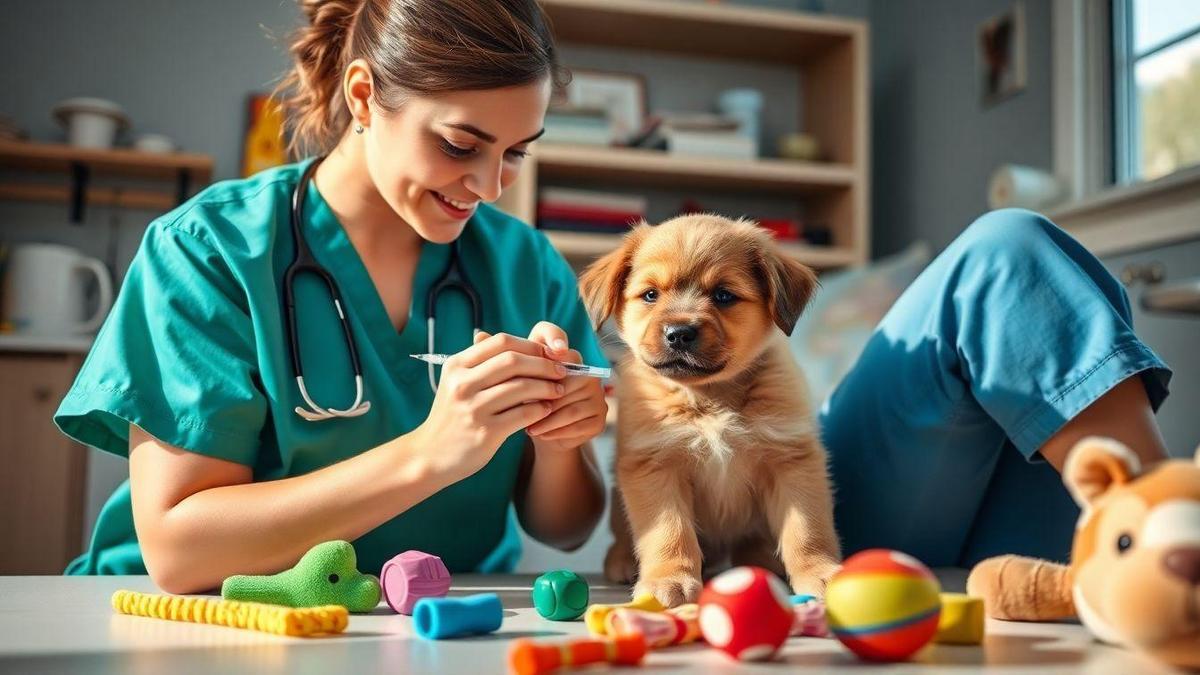
Vaccination Tips for Puppies: Keeping It Stress-Free
How to Calm Your Puppy Before Vaccinations
Getting our puppy ready for vaccinations can feel a bit like preparing for a trip to the dentist—nervous energy and lots of wiggling! But fear not, we can make this experience smoother for our furry friend. Here are some ways to keep our puppy calm before their big day:
- Familiarize Them with the Vet: Take a few trips to the vet just to say hello. Let them sniff around and get used to the environment.
- Practice Handling: Gently touch their paws, ears, and mouth at home. This helps them feel more comfortable when the vet does it.
- Use Treats: Bring along their favorite treats. Rewarding them for calm behavior can create a positive association with the vet visit.
- Stay Calm Ourselves: Puppies can pick up on our feelings. If we’re relaxed, they’re more likely to feel safe.
Post-Vaccination Care for Your Puppy
After our puppy receives their vaccinations, it’s crucial to keep an eye on them. Here’s how we can help them feel cozy and cared for:
- Limit Activity: Keep playtime light for the day. A few gentle snuggles on the couch can do wonders.
- Monitor Their Behavior: Our puppy might be a little sleepy or less playful. That’s okay! Just let them rest.
- Provide Comfort: A soft blanket or their favorite toy can help soothe them.
Recognizing Common Side Effects After Vaccination
Sometimes, our puppies may experience mild side effects after getting their shots. Knowing what to look for can help us feel more at ease:
| Side Effect | Description |
|---|---|
| Lethargy | They might seem a bit sleepy or less active. |
| Slight Fever | A mild increase in temperature can happen. |
| Swelling | There may be some swelling at the injection site. |
| Loss of Appetite | Our pup might not want to eat as much for a day. |
If we notice anything unusual or if these side effects last more than a day, it’s best to reach out to our vet.
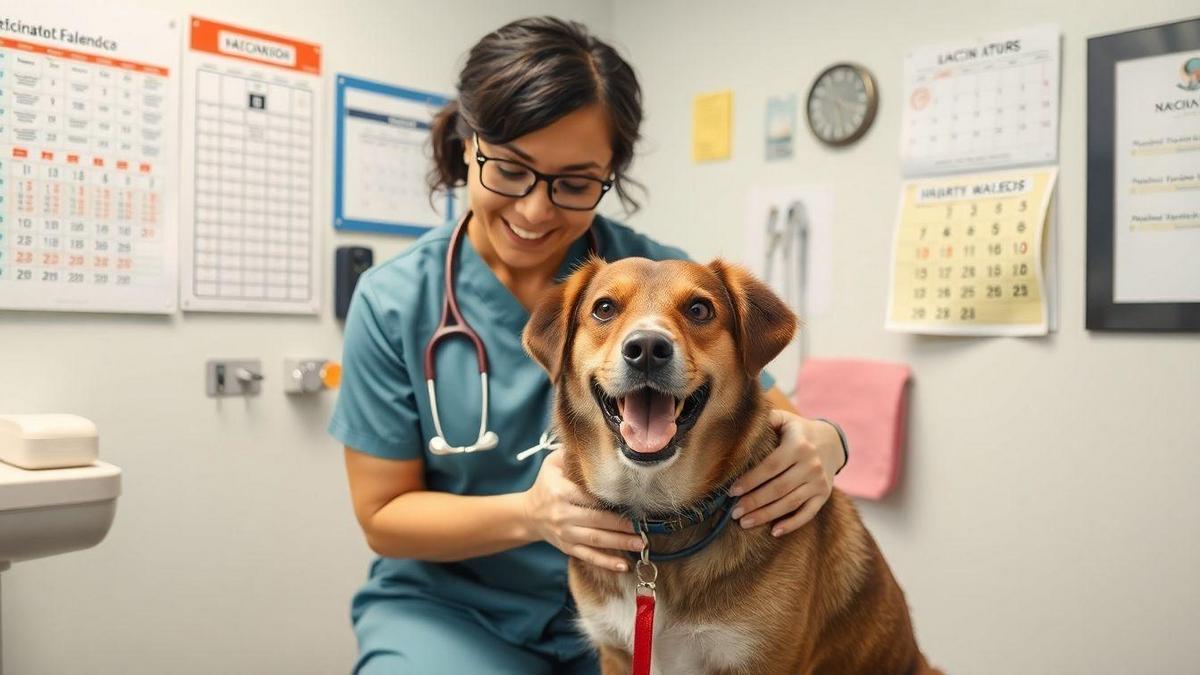
Dog Vaccination Timeline: A Year-by-Year Overview
What to Expect in Your Puppy’s First Year
Bringing home a puppy is like welcoming a tiny tornado of joy into our lives! But with all that excitement comes the responsibility of keeping our furry friend healthy. In the first year, vaccinations are crucial to protect our puppies from various diseases.
Here’s a quick look at what we can expect:
- 6-8 Weeks: The first round of vaccinations usually happens here. Our little one will get their first DAPP (Distemper, Adenovirus, Parvovirus, and Parainfluenza) shot. This is a big step in keeping them safe!
- 10-12 Weeks: A second dose of DAPP is given, along with the Bordetella vaccine, which helps protect against kennel cough.
- 14-16 Weeks: The final DAPP shot is given, along with the Rabies vaccine. This is also the time for a Leptospirosis vaccine if we live in areas where this disease is common.
- 1 Year: After a year, it’s time for a booster shot for DAPP and Rabies. Our puppy is now officially a big kid!
Vaccination Milestones for Older Dogs
As our dogs grow older, they still need vaccinations to keep them healthy. Here’s what we should keep in mind:
- 1-3 Years: Depending on the vaccine, our dogs may need boosters every 1-3 years. For example, the Rabies vaccine is usually required every 1-3 years based on local laws.
- 4-7 Years: At this stage, we should talk to our vet about any additional vaccines our dog might need. Some may require a Bordetella booster if they are frequently around other dogs.
- 8 Years: Senior dogs often need a tailored vaccination plan. Their immune systems may not be as strong, so we should work closely with our vet to keep them protected.
Adjusting the Timeline for Different Breeds
Not all dogs are created equal! Some breeds might need a slightly different vaccination schedule. Here’s a quick table to help us understand:
| Breed Size | Vaccination Notes |
|---|---|
| Small Breeds | May need more frequent vaccinations due to higher risks. |
| Medium Breeds | Follow standard vaccination schedule but monitor closely. |
| Large Breeds | Can sometimes have a slower immune response; check with the vet. |
| Giant Breeds | May have a different timeline due to their size; consult a vet. |
As we navigate our furry friends’ health, it’s important to remember that each dog is unique. We should always consult our vet to create a vaccination plan that fits our dog’s specific needs.
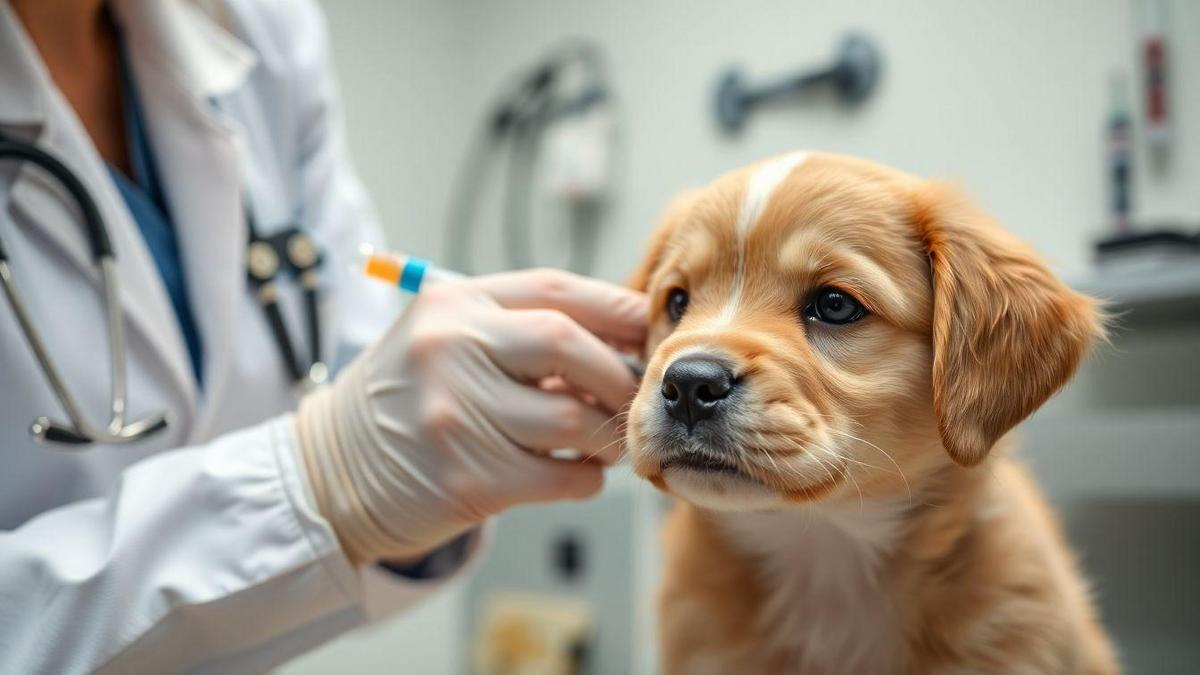
The Role of Puppy Vaccination in Preventing Disease
When we bring a puppy into our lives, we’re not just welcoming a new friend; we’re also taking on the responsibility of keeping them safe and healthy. One of the most important steps in that journey is the puppy vaccination schedule. Vaccinations play a crucial role in protecting our furry companions from serious diseases that can threaten their lives.
Common Diseases Prevented by Vaccinations
Puppies are vulnerable to several diseases, and vaccinations help guard against them. Here’s a quick list of some common diseases that vaccinations can prevent:
- Parvovirus: A highly contagious virus that can cause severe gastrointestinal issues.
- Distemper: A serious disease affecting the respiratory, gastrointestinal, and nervous systems.
- Hepatitis: A viral infection that can lead to liver damage.
- Rabies: A fatal disease affecting the brain, transmitted through bites from infected animals.
These diseases can be life-threatening, and vaccinations are our best defense.
The Impact of Vaccination on Puppy Lifespan
Vaccinations can significantly impact how long our puppies live. According to studies, vaccinated dogs tend to have longer lifespans compared to those who are not vaccinated. This is because vaccines help protect against diseases that could cut their lives short.
Think of it this way: when we vaccinate our puppies, we’re giving them a strong shield against harmful diseases. This means more years of tail wags, playful barks, and snuggles on the couch!
Building Immunity Through Vaccination
Vaccinations work by building immunity in our puppies. When they receive a vaccine, their immune system learns to recognize and fight off specific diseases. It’s like training for a big game—once they’ve practiced, they’ll be ready to tackle whatever comes their way!
Here’s a simple table to show how vaccinations help build immunity:
| Vaccine | Disease Prevented | Age to Start Vaccination |
|---|---|---|
| Distemper | Distemper | 6-8 weeks |
| Parvovirus | Parvovirus | 6-8 weeks |
| Adenovirus | Hepatitis | 6-8 weeks |
| Rabies | Rabies | 12-16 weeks |
By following the puppy vaccination schedule, we’re not just protecting our puppies; we’re also contributing to the health of the entire dog community.
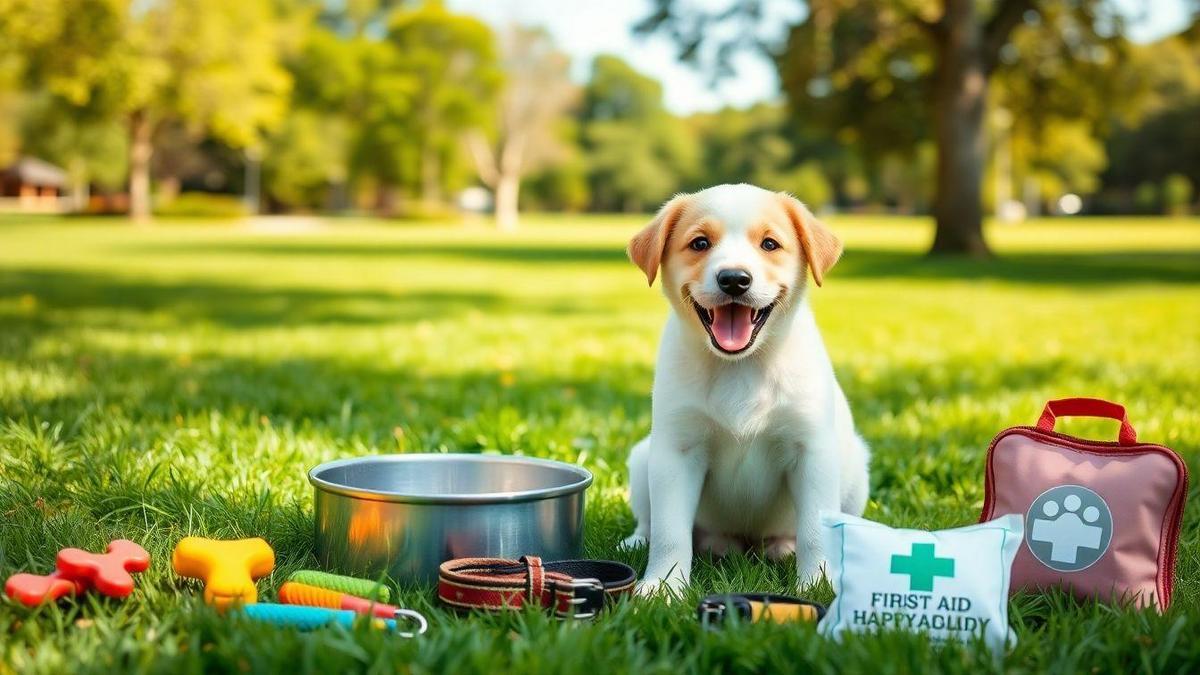
Pet Health Tips for New Puppy Owners
Creating a Safe Environment for Your Puppy
When we bring a puppy into our homes, the first thing we want to do is create a safe space for them. It’s like setting up a cozy little nest for our new furry friend! Here are some easy ways we can do this:
- Puppy-proof our home: Just like toddler-proofing, we should remove anything that could harm our little one. This means hiding wires, securing loose items, and putting away toxic plants.
- Designate a play area: We can set up a specific spot for our puppy to play. Using gates can help keep them safe from areas that aren’t puppy-friendly.
- Comfortable bedding: A soft bed or blanket will give our puppy a cozy place to rest. We want them to feel right at home!
Socialization and Training Tips
Socialization is key to raising a well-rounded dog. It’s like introducing them to the world! Here’s how we can help our puppies feel comfortable around new people and experiences:
- Meet new friends: Let’s take our puppy to parks or puppy classes. Meeting other dogs and people helps them learn how to interact.
- Positive reinforcement: When our puppy does something good, let’s reward them with treats or praise. This encourages good behavior and builds a strong bond between us.
- Short training sessions: Puppies have short attention spans, so let’s keep training sessions brief but fun! A few minutes a day can make a big difference.
Resources for Ongoing Puppy Health Education
We know that raising a puppy is a journey, and we can always learn more. Here are some great resources to keep us informed:
| Resource Type | Description |
|---|---|
| Books | Look for puppy training books at your local library or bookstore. They often have helpful tips and tricks! |
| Online Courses | Websites like Coursera or Udemy offer puppy training courses that we can take at our own pace. |
| Veterinarian | Our vet is a goldmine of information. Regular check-ups can keep us updated on our puppy’s health needs. |
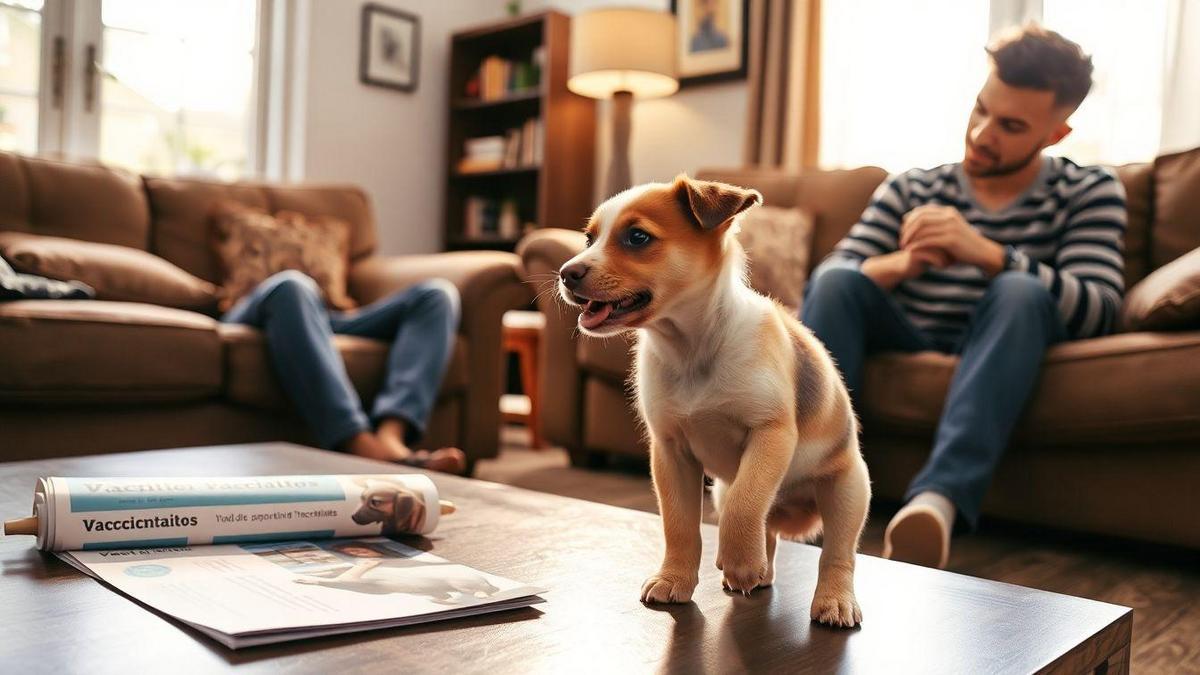
Understanding Puppy Vaccination Reactions
Vaccinations are vital for our puppies. They help keep our furry friends safe from diseases. But sometimes, after getting their shots, our pups might show some reactions. Let’s dive into what we can expect and how to help them feel better!
Normal Reactions to Expect After Vaccination
After our puppy gets vaccinated, it’s common for them to have a few normal reactions. Here’s a quick list of what we might see:
- Mild Fever: Our puppy might feel a bit warmer than usual.
- Lethargy: They may want to take it easy and nap more than usual.
- Soreness at the Injection Site: Our pup could have some tenderness where the shot was given.
- Loss of Appetite: They might not feel like eating right away.
These reactions are usually mild and should go away within a day or two. If we notice these signs, it’s often just our puppy’s body reacting to the vaccine.
When to Contact Your Veterinarian
While most reactions are normal, there are times when we should reach out to our vet. If we notice any of these more serious signs, it’s time to make a call:
- Severe Lethargy: If our puppy is extremely tired and won’t get up.
- Persistent Vomiting or Diarrhea: If these continue for more than a few hours.
- Swelling or Redness: If the injection site looks very swollen or red.
- Difficulty Breathing: If our puppy is having trouble breathing or coughing.
It’s always better to be safe than sorry. If we’re unsure, calling the vet is a good idea!
Keeping Your Puppy Comfortable After Shots
After their vaccinations, we can help our puppy feel more at ease. Here are some tips to keep in mind:
- Create a Cozy Space: Set up a quiet area with their favorite blanket and toys.
- Offer Water: Make sure they have access to fresh water to stay hydrated.
- Gentle Cuddles: Sometimes, a little love and attention can go a long way. We can cuddle up with them to make them feel safe.
- Monitor Their Behavior: Keep an eye on how they’re feeling. If anything seems off, don’t hesitate to check in with the vet.
By taking these steps, we can help our puppies bounce back quickly after their vaccinations!
Conclusion
In wrapping up our journey through the Puppy Vaccination Schedule, it’s clear that keeping our furry companions healthy is a top priority. From understanding the key vaccinations to tracking those all-important dates, we’ve covered a lot of ground. Remember, these vaccinations are not just a box to check off; they are our puppies’ first line of defense against serious diseases.
As we navigate this exciting time, let’s stay proactive about our puppy’s health. Regular check-ups and open communication with our vet will help pave the way for a long, happy life together. So, let’s roll up our sleeves and ensure our pups get the best start possible!
If you’re eager for more insights and tips on puppy care, don’t hesitate to check out more articles at Redeversatil. Happy puppy parenting!
Frequently Asked Questions
What is the Puppy Vaccination Schedule: What You Need to Know?
The Puppy Vaccination Schedule outlines the shots your puppy needs. Usually, it starts around 6 to 8 weeks old and continues until they are about 16 weeks. These vaccines help keep our puppies healthy and safe from diseases.
When should we start vaccinating our puppy?
We should start vaccinations when our puppy is 6 to 8 weeks old. Early shots help build their immune system. This way, our pups can have a strong start in life!
How many vaccinations does my puppy need?
Most puppies need a series of shots. Typically, they get about 3 to 5 vaccines before they turn 16 weeks. Each one protects against different diseases. It’s important to follow the schedule!
Can we skip any vaccinations?
We should not skip any vaccinations. Each one plays a crucial role in keeping our puppy safe. Missing a shot can put them at risk of serious illnesses. Let’s make sure our furry friends are fully protected!
